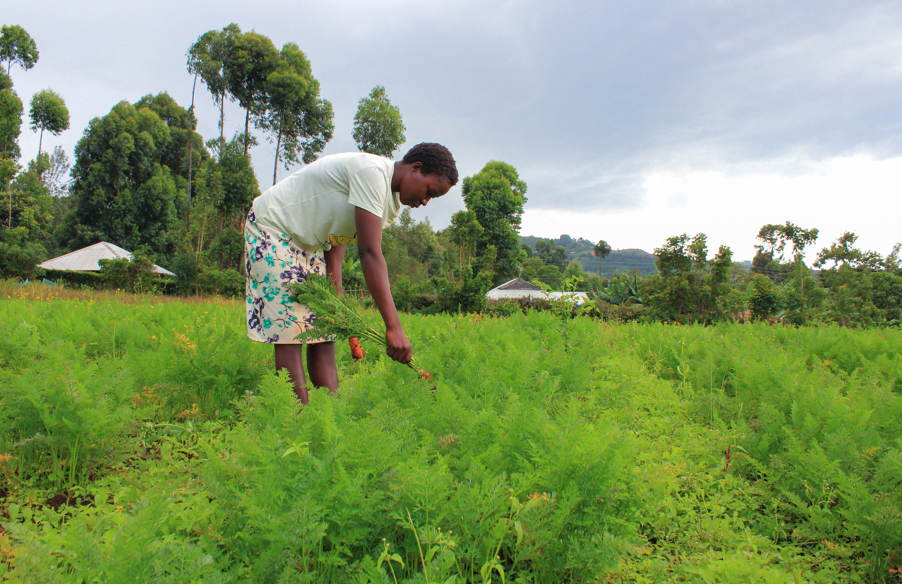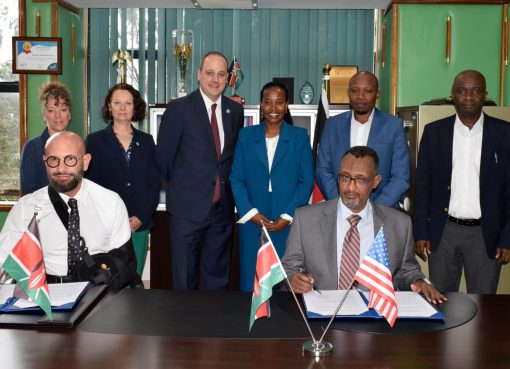Carrot farming has emerged as one of the highly valued farming activities considered profitable in Kenya though mainly grown for the local market.
Small-holder farmers in Kisii County are opting for carrot farming due to its high yielding capability even from a small piece of land and with a shorter maturity period as compared to other crops like coffee.
Albert Sagwe, a carrot farmer and trader from Nyakomisaro in Kisii County started growing carrots in 1996 after he was motivated by neighbours in his village.
Sagwe says he asked his friends who had some bigger pieces of land to join him in practicing carrot farming while he bought 50 grams of carrot seeds at Sh75 from an agrovet in Kisii town.
Sagwe notes that he saved the money he got after selling their produce and decided to practice carrot farming on his own adding that he spent Sh4, 000 to prepare a quarter acre piece of land that he leased at Otamba, in the outskirts of Kisii town, and planted 250 grams of Nantes seeds.
“I harvested 25 sacks of carrots after three months and I gave traders in Kisii town to help me sell since I did not know how to sell. From the returns I received, I managed to look for more pieces of land since our farm was small and I needed to expand my farming,” recalls Sagwe.
He says that he leases at least three parcels of land that ranged between half to one acre in size and hires people who help him prepare them ready to plant the carrots that he harvests and sells on his own.
Sagwe adds that he buys carrots from other farmers; in terms of the number of sacks agreed or directly from the farm, adds to his harvest and sells them in the Kisii town market, boosting his income.
Using the income he generates from carrot farming, Sagwe says he was able to educate his children, buy food, pay for medicals, manage other house expenses, and start other types of farm activities like onion farming.
He points out climate change as one of the major challenges he faces in his farming saying a farmer could plant carrots and they get scorched by the harsh sun leading to low yields.
Mary Omboga, also a farmer who hails from Bosigisa, Kisii County started carrot farming eight months ago together with her elder brother.
Growing up, Omboga says, she admired the zeal with which her parents’ nurtured carrots on their acre farm from which they managed to sustain the family including the facilitation of their education.
This motivated her while she learned farming skills and later on, she acquired a parcel of land from her parents and decided to continue growing carrots.
From her small marketing business, Omboga adds that she was able to generate Sh15, 000 that she used to buy Africa Best seeds from an agrovet in Kisii town, paid for labour that prepared their half-acre piece of land, and planted the carrots.
“The soil is cultivated to a depth of 30cm and lightly aerated by shallow digging using a hoe. The seeds are mixed with soil in furrows of about 1 cm deep in drills of 15cm apart in finely prepared soils to facilitate weeding and thinning after one to two weeks,” expounds Omboga.
She adds that after the seeds are mixed with finely prepared soil of about 1cm, she practices mulching using dry banana leaves that encourage the germination of the carrots.
Ombogo notes that weeding is essential and it depends on the type of weeds that grow adding that she weeds their carrots at least twice by uprooting weeds together with small and weak carrots to facilitate the growth of the big and healthy ones.
She points out that it is easy to know when carrots have matured and are ready for harvest when their leaves start to pale or when they start to flower or a farmer could check the soil around them to see how big they have grown.
Omboga says their farm produces up to 50 sacks of carrots that she sells to Albert Sagwe direct from the farm at Sh65, 000 per harvest, the money she uses to educate her child, buy food for the family, and add more stock to their local shop.
Carrots are cool-season vegetables that need a proper climate, fertile and well-drained soils with moderate temperatures except for clay or stony soils to develop good flavour and increase the quality of the vegetables.
With a high vitamin A content, the roots are cooked alone or in combination with other vegetables as an ingredient of soup, sauce, and dietary compositions or consumed when fresh as a salad.
By Augustine Mosioma





